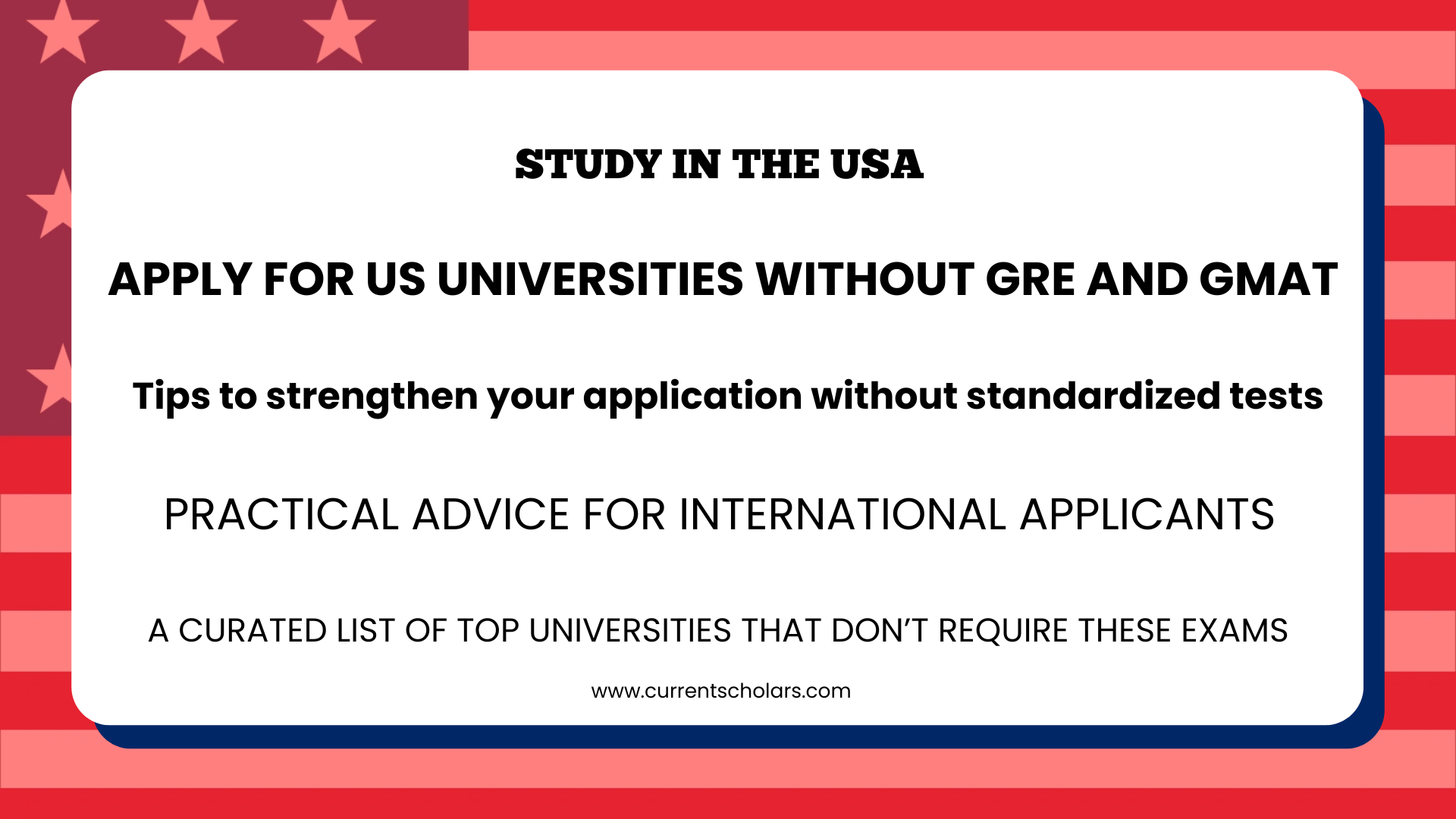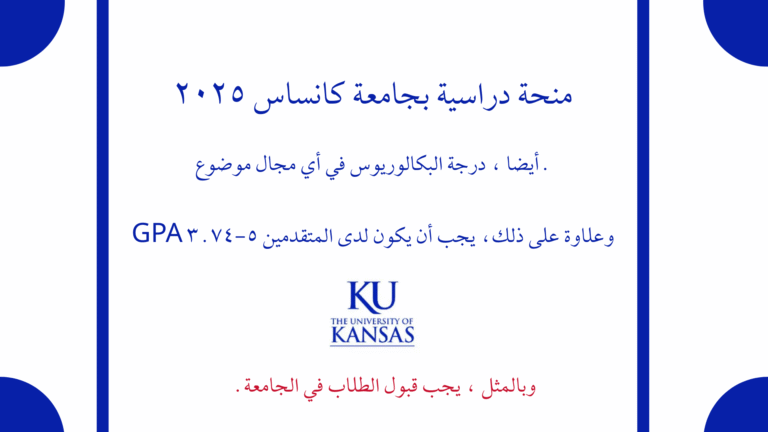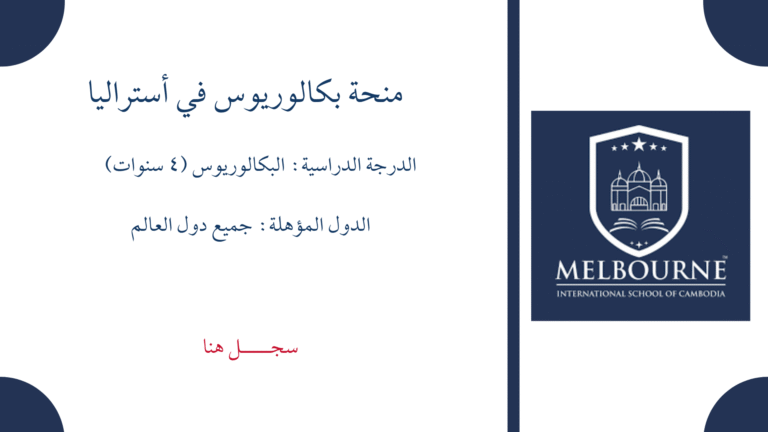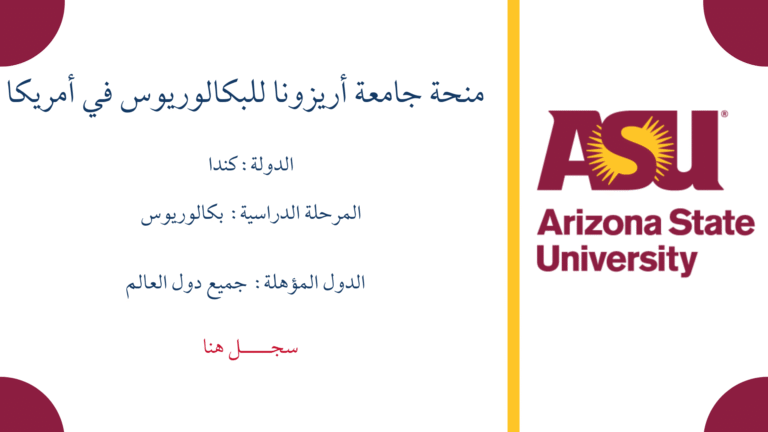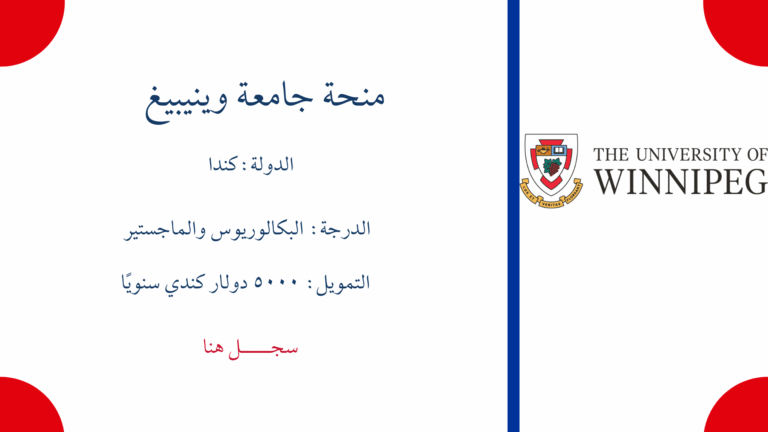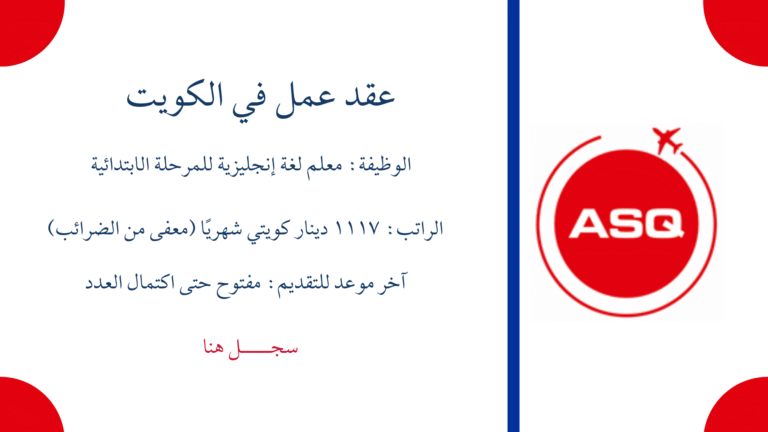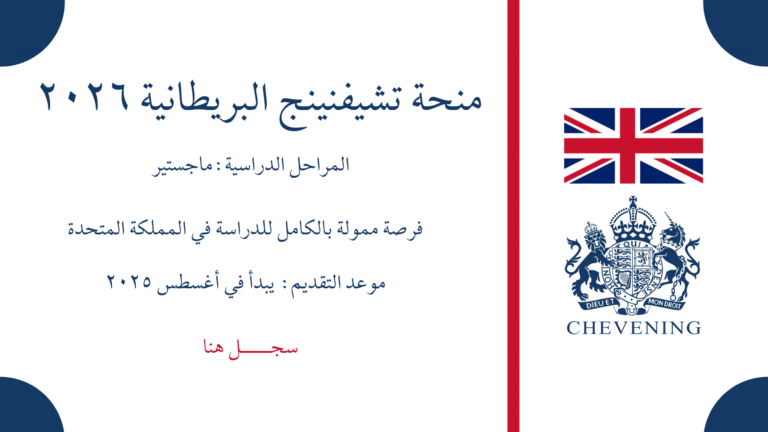هل تحلم بالدراسة في الولايات المتحدة لكنك تشعر بالقلق من اختبارات القبول مثل GRE أو GMAT؟ لست وحدك. كثير من الطلاب الدوليين يواجهون تحديات مشابهة، سواء كانت صعوبة التحضير، التكاليف المالية، أو الضغوطات الناتجة عن متطلبات التقديم الكثيرة.
لكن إليك الخبر السار: يمكنك الآن التقديم للعديد من الجامعات الأمريكية دون الحاجة إلى تقديم درجات GRE أو GMAT.
في هذا الدليل الشامل، سوف نغطي ما يلي:
-
لماذا تتخلى الجامعات الأمريكية عن اختبارات GRE و GMAT
-
قائمة محدثة بأفضل الجامعات التي لا تطلب هذه الاختبارات
-
نصائح لتقوية ملفك عند التقديم بدون اختبارات قياسية
-
بدائل لاختبارات اللغة مثل Duolingo
-
نصائح عملية للمتقدمين الدوليين
هيا نبدأ.
لماذا تتخلى الجامعات الأمريكية عن اختبارات GRE و GMAT؟
أصبح الاتجاه نحو قبول الطلبة بدون اختبارات قياسية أكثر انتشارًا خلال جائحة كورونا، بسبب إلغاء الاختبارات وصعوبات السفر. وقد استمر هذا التوجه لعدة أسباب:
1. العدالة وسهولة الوصول
الاختبارات مثل GRE و GMAT مكلفة وصعبة من الناحية اللوجستية، خاصةً للطلاب من الدول النامية. التخلي عنها يعزز التنوع في صفوف الطلبة.
2. ضعف القيمة التنبؤية
العديد من الجامعات اكتشفت أن درجات الاختبارات لا تعكس دائمًا النجاح الأكاديمي. الأداء الدراسي، والخبرة المهنية، والبيانات الشخصية تعد مؤشرات أفضل.
3. سياسة قبول شاملة
بدأت الجامعات تعتمد على تقييم شامل يشمل المعدلات الدراسية، التوصيات، الخبرات العملية، واهتمامات البحث.
معلومة هامة: ليست كل البرامج تستغني عن GRE أو GMAT، لذلك يجب دائمًا التحقق من صفحة القبول الرسمية لكل جامعة.
الجامعات الأمريكية التي لا تطلب GRE و GMAT (قائمة محدثة)
جامعات لا تطلب GRE/GMAT في عدة برامج
| الجامعة | ملاحظات |
|---|---|
| جامعة نورث إيسترن | لا تطلب GRE/GMAT في معظم برامج الدراسات العليا |
| جامعة تكساس التقنية | تم التنازل عن GRE لمعظم التخصصات |
| جامعة أريزونا | لا يُطلب GRE لبرنامج الصحة العامة |
| معهد ستيفنز للتكنولوجيا | اختياري لمعظم البرامج |
| جامعة بوسطن | ألغت الاختبارات لعدة برامج |
| جامعة تكساس ريو غراندي فالي | لا تطلب GRE/GMAT في عدة برامج |
| جامعة درو | تم إلغاء GRE تمامًا |
| معهد إلينوي للتكنولوجيا | لا تُطلب اختبارات لعدة تخصصات |
| جامعة دوكين | لا تطلب GRE/GMAT لبرامج إدارة الأعمال |
جامعات لا تطلب GRE/GMAT في برامج محددة
| الجامعة | البرامج |
|---|---|
| جامعة نورث كارولاينا شارلوت | ماجستير إدارة الأعمال |
| معهد RIT | كلية إدارة الأعمال |
| جامعة ألاباما | بعض التخصصات فقط |
| جامعة ميسيسيبي | تم التنازل بسبب ظروف الجائحة |
| جامعة ممفيس | كلية الصحة العامة |
| جامعة أوبورن | برامج كلية إدارة الأعمال |
| جامعة لويفيل | برامج إدارة الأعمال |
| جامعة برانديز | برنامج السياسة العامة |
بدائل اختبار اللغة الإنجليزية: اختبار Duolingo
بجانب الاستغناء عن GRE و GMAT، تقبل العديد من الجامعات الآن اختبار Duolingo كبديل لـ IELTS أو TOEFL.
لماذا Duolingo؟
-
سعره معقول: 59 دولارًا
-
مريح: يمكن تقديمه من المنزل
-
سريع: النتائج خلال 48 ساعة
-
مقبول عالميًا: أكثر من 4000 جامعة حول العالم
المتطلبات:
-
جهاز كمبيوتر بكاميرا
-
هوية رسمية (جواز سفر أو بطاقة هوية)
-
اتصال إنترنت مستقر
-
غرفة هادئة ومضيئة
-
حوالي 60 دقيقة بدون انقطاع
كيف تقوي طلبك بدون GRE أو GMAT؟
1. سجل أكاديمي قوي
ركز على رفع معدلك التراكمي ودرجاتك السابقة.
2. خطاب الدافع المميز (Statement of Purpose)
اشرح فيه:
-
أهدافك الأكاديمية والمهنية
-
سبب اختيارك للبرنامج
-
نقاط القوة والضعف لديك
-
دافعك واستعدادك الكامل
3. الخبرات العملية والتدريبية
الخبرة في سوق العمل تعزز فرص القبول، خاصة في برامج MBA.
4. رسائل توصية قوية
اختر أساتذة أو مشرفين يمكنهم توضيح مؤهلاتك بصدق واحتراف.
5. أبحاث أو مشاريع سابقة
أضف أي منشورات بحثية أو مشاريع ذات صلة في سيرتك الذاتية.
نصائح للطلاب الدوليين بدون GRE/GMAT
-
افهم متطلبات البرنامج: زر الموقع الرسمي لكل جامعة للتحقق من السياسات.
-
استعد للمقابلات الافتراضية: تدرب على التحدث بالإنجليزية.
-
أبرز مشاركاتك المجتمعية والقيادية.
-
جهز وثائق التأشيرة والدعم المالي مبكرًا.
أمثلة على برامج واقعية لا تتطلب GRE/GMAT
🔹 ماجستير علوم البيانات في جامعة Northeastern
-
لا يتطلب GRE
-
يقبل Duolingo
-
يركز على المهارات العملية والمشاريع النهائية
🔹 MBA في RIT
-
GMAT غير مطلوب لمن لديهم أكثر من 3 سنوات خبرة
-
تنسيق مرن
-
يقبل Duolingo
🔹 MPH في جامعة أريزونا
-
لا يُطلب GRE
-
يركز على الصحة العالمية وعلم الأوبئة
-
توجد منح دولية
خلاصة: لا تضيع هذه الفرصة الذهبية
لقد تغير مشهد القبول للدراسات العليا في الولايات المتحدة نحو الأفضل. أصبحت الجامعات أكثر مرونة، مما يفتح الأبواب أمام الطلاب الدوليين دون عبء GRE أو GMAT.
استغل هذا التغيير لصالحك. استخدم الأدلة والقوائم في هذا المقال لتحديد البرامج المناسبة لك. جهّز ملفك بعناية، وابدأ بالتقديم الآن.
🎯 ابدأ اليوم!
-
حدّد البرامج التي تناسب أهدافك
-
استخدم منصات مثل GradSchools و Peterson’s لتصفية النتائج
-
جهّز SOP ممتاز، اجمع توصيات قوية، وتدرب على المقابلات
🌐 للمزيد من الأدلة المحدثة والمنح، تفضل بزيارة موقعنا.
قدّم بذكاء، قدّم مبكرًا — وادرس في أمريكا بدون حواجز.

